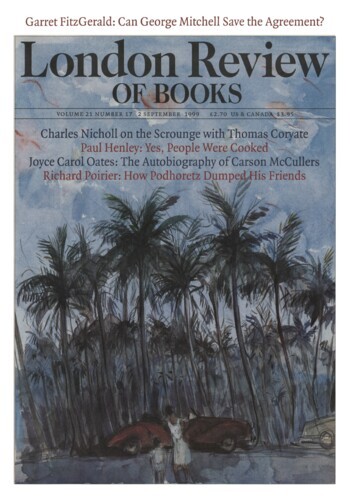Abolish everything! Situationist International
Andrew Hussey, 2 September 1999
It is not by chance that the history of the Situationist International reads like an account of a military campaign. During their first, ‘artistic’ phase, which ran roughly from the group’s foundation in 1957 through to the early Sixties, the Situationists were at war with what they contemptuously termed ‘the civilisation of the image’. Their enemies, in ascending order of importance, were work, leisure, boredom, advertising, modern art and, above all, the tendency of cultures of mass production to turn real life into an endless series of frozen gestures or ‘spectacles’. Their originality lay in the claim made in 1967 by Guy Debord in The Society of the Spectacle that the forces of ‘spectacular domination’ could be fought and defeated on their own terms. Unlike their close contemporaries in the postwar French Left, Socialisme ou Barbarie, the group led by Cornelius Castoriadis, the Situationists saw their project both as a critique of modern capitalism and its alienating social processes, and as a set of solutions that the dead language of classical French Marxism was unable to provide. The war against the ‘spectacular society’ was to be a long one: ‘The fact is that a critique capable of surpassing the spectacle,’ Debord wrote, ‘must know how to bide its time.’‘

